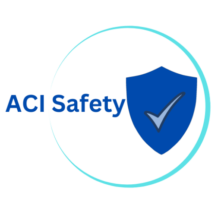If you’re running a small business, chances are you’ve got a few legal responsibilities tucked away on your never-ending to-do list—health and safety being one of them. COSHH is one of those things that often gets overlooked, usually because people assume it only applies to big factories, labs, or chemical-heavy industries.
So let me clear that up right now:
If your business uses any substance that could harm someone’s health—even something as everyday as bleach—then yes, COSHH applies to you.
You don’t need barrels of toxic waste or bubbling science experiments. You just need a few cleaning products, a bit of dust, or some fumes, and you’re in COSHH territory.
What COSHH actually covers (quick refresher)
COSHH stands for Control of Substances Hazardous to Health. It’s a UK law that requires employers to control substances that can cause harm when people are exposed to them at work.
It covers things like:
- Chemicals (cleaning fluids, paints, adhesives, solvents)
- Dusts (wood dust, flour, cement, plaster)
- Fumes and vapours (from spraying, welding, heating)
- Mists and aerosols
- Biological agents (germs, bacteria, bodily fluids)
- Gases (carbon monoxide, LPG leaks, refrigerants)
So before you switch off and assume this doesn’t apply to your little business, let’s look at some common scenarios where COSHH gets missed.
Businesses where COSHH is commonly overlooked
Hairdressers and beauty salons
This is a big one. If you’re using hair dye, bleach, nail products, disinfectants, or sprays—COSHH definitely applies. Skin irritants, respiratory issues, and eye damage are all risks in the beauty world, and they’re easy to forget about when you’re focused on appointments.
Cleaning companies (even one-person ones)
Bleach, toilet cleaner, limescale remover, oven cleaner… if you’re carrying those around in the back of your car, you need to have COSHH assessments in place. Decanting into smaller bottles? Then you’ve also got labelling and storage to think about.
Even if you buy your stuff from a supermarket shelf, the law still applies.
Cafés, restaurants, and takeaways
Kitchen cleaning chemicals. Oven sprays. Dishwasher tablets. Degreasers. Air fresheners. Hand sanitiser. COSHH applies to all of them. Plus, flour dust in bakeries is a known cause of occupational asthma—so don’t assume food = safe.
And if you’ve got staff doing the cleaning or maintenance? Even more reason to get this sorted.
Trades and construction
This one’s more obvious, but still worth mentioning. If you’re working with adhesives, paints, concrete, plasterboard, dust, or fuel—you need COSHH assessments.
Bonus points if you’re cutting, sanding, grinding, or welding. That’s when exposure gets serious.
Childcare providers
You might not think of a nursery or childminder service as a “COSHH business,” but you’re probably using:
- Nappy bin disinfectant
- Cleaning sprays
- Antibacterial wipes
- Hand gels
- Laundry powders
And you’ve got a duty to protect both your staff and the children in your care. COSHH definitely applies.
Gyms and fitness studios
You’re cleaning equipment, managing air quality, and possibly dealing with body fluids (sweat, blood, vomit—hey, it happens). You’ve probably also got cleaning contractors using chemicals onsite. So yes, COSHH applies here too.
Offices and coworking spaces
Even offices use substances that fall under COSHH. Think:
- Printer toner (in large quantities)
- Whiteboard cleaner
- Air fresheners
- Antibac wipes and sprays
- Maintenance chemicals (boiler treatments, drain un-blockers)
If someone’s job involves using these things regularly, or they’re stored in bulk, you’ll need COSHH assessments.
What if I only use household products?
This is the most common reason small businesses ignore COSHH:
“It’s just stuff from Tesco.”
But frequency, quantity, and workplace use are what matter here—not where you bought it.
For example:
- Using bleach once a week at home = low risk.
- Using bleach 10 times a day as part of your job = work-related exposure = COSHH.
It’s not about panicking or banning products—it’s about making sure people know how to use them safely and what to do if something goes wrong.
What if I’m self-employed?
Even if you’re working alone, COSHH still applies if:
- You’re exposing yourself to hazardous substances during your work
- You’re working on a client site
- Other people (like subcontractors or clients) could be affected by what you’re doing
So yes, even as a one-person operation, you’re still responsible for thinking this through and putting sensible controls in place.
You might not need reams of paperwork, but you do need to do a risk assessment and keep it somewhere accessible.
What you need to do (if COSHH applies)
Here’s what the law expects from you:
- Identify the hazardous substances you use
- Get the safety data sheets from your suppliers
- Do a COSHH assessment for each one—just a short, sensible risk assessment (don’t overcomplicate it)
- Put controls in place to prevent or reduce harm (gloves, ventilation, safe storage, clear labelling, etc.)
- Train your team—make sure they know what they’re using and how to use it safely
- Keep records—of your assessments, controls, training, and data sheets
- Review things regularly—especially when products or processes change
That’s it. You’re not expected to reinvent the wheel. Just take reasonable steps to keep people safe.
Still not sure if COSHH applies to you?
If you’re still scratching your head, or if you’re thinking “Maybe… but I’m not sure,” then let’s have a quick chat. I work with loads of small businesses in exactly this situation—trying to work out what applies, what’s overkill, and what actually needs doing.
I offer practical, remote help. That might be a quick check-in to review your substances, or a full set of COSHH assessments ready to go. No nonsense, no scary legal talk—just solid advice and templates that actually make sense.

